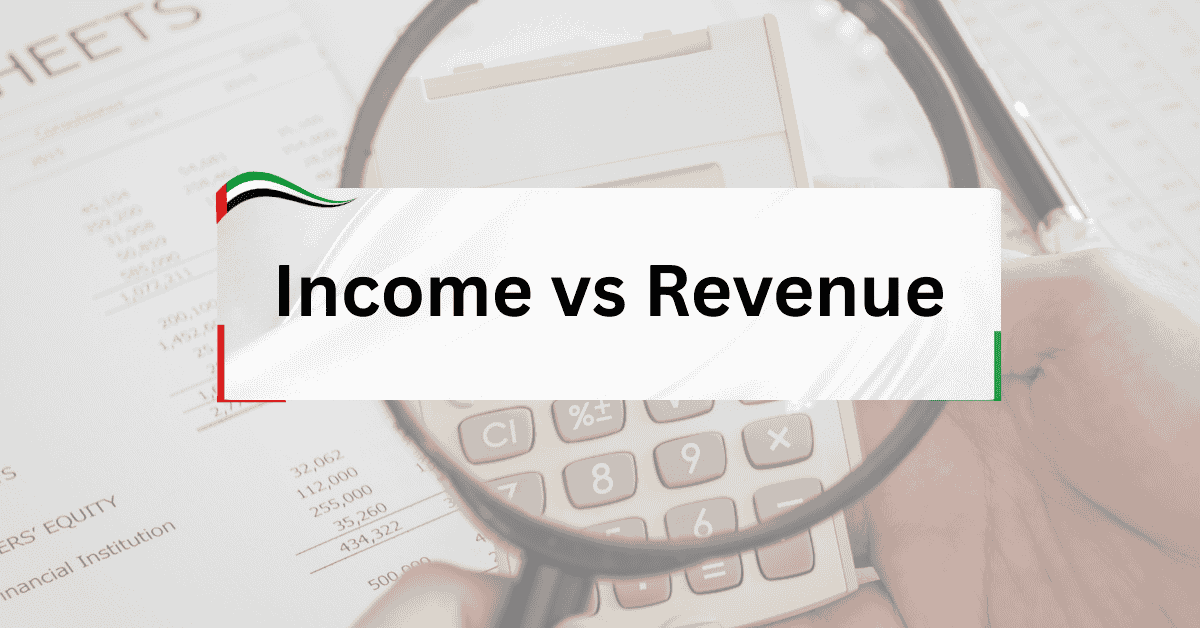Income vs Revenue — Differences in Simple Details
Table of Contents
Introduction
When analyzing finances, two terms are often confused: income vs revenue. At first glance, both seem to describe “money earned,” but in reality, they measure two very different financial concepts. Revenue shows how much money is coming in, while income reveals how much money is left over after expenses.
This distinction matters whether you’re a CEO evaluating company performance, a professional calculating take-home pay, or an investor deciding where to allocate capital. Misunderstanding income vs revenue can lead to poor decisions, overvalued businesses, and unrealistic personal budgets.
In this article, we’ll break down the difference between income vs revenue with business examples, personal finance applications, and real-world insights. We’ll also connect these lessons to investment strategy — particularly how high-net-worth individuals use this understanding to choose guaranteed ROI real estate investments in Dubai, guided by industry expert Abu Nahyan.
Section 1: What is Revenue?
Revenue is the total money generated by a business before expenses. It is often referred to as the “top line” because it appears at the top of an income statement.
- Business Revenue: Includes sales of products, service fees, subscriptions, or contracts.
- Personal Revenue: Equivalent to gross salary before taxes, commissions, or deductions.
According to Investopedia, revenue is the first step in measuring financial performance, but it does not reveal profitability.
Example:
- A SaaS company sells 1,000 software licenses at $200 each. Its revenue = $200,000.
- An individual earns $8,000/month before taxes. Their annual revenue (gross pay) = $96,000.
Revenue shows potential — how much is generated — but not how much is kept.
Section 2: What is Income?
Income, on the other hand, is profit after expenses. It is often called the “bottom line” because it sits at the bottom of the financial statement, showing what’s left after everything else is paid.
- Business Income: Net earnings after deducting salaries, rent, utilities, marketing, taxes, and interest.
- Personal Income: Net salary or take-home pay after taxes, retirement contributions, and insurance deductions.
As Klipfolio explains, income provides the true picture of financial health — because a company with $1B in revenue but $999M in expenses only has $1M in income.
Example:
- A business earns $200,000 in revenue but spends $150,000 on operations, leaving an income of $50,000.
- An employee with $96,000 in revenue (salary) keeps $66,000 after deductions, meaning their income = $66,000.
Income reflects sustainability. It’s what builds long-term wealth.
Section 3: Income vs Revenue — The Core Differences
| Aspect | Revenue | Income |
|---|---|---|
| Definition | Total earnings before expenses | Net profit after expenses |
| Nickname | “Top line” | “Bottom line” |
| Business Example | All product/service sales | Profit after rent, salaries, taxes |
| Personal Example | Gross salary before tax | Net salary after tax |
| Focus | Sales growth | Profitability, wealth creation |
The confusion in income vs revenue comes from people using them interchangeably. In truth:
- Revenue = How much comes in
- Income = How much you keep
Section 4: Why This Difference Matters
1. For Businesses
Revenue growth looks impressive, but without healthy income margins, a company is not sustainable. Many startups brag about revenue milestones but operate at a loss for years.
- Example: A food delivery app reports $1B in revenue but -$200M in income due to high marketing costs.
2. For Individuals
A professional might earn $200,000/year (revenue) but keep only $140,000 after tax and expenses (income). Knowing the difference helps in budgeting and lifestyle planning.
3. For Investors
Revenue-driven companies may promise growth, but income-focused businesses deliver stability. Smart investors know that income matters more than flashy revenue numbers.
Section 5: Business Examples of Income vs Revenue
Let’s look at practical corporate cases:
- Apple Inc. (2024) reported over $383 billion in revenue. However, after costs, its net income = $97 billion. The company is profitable because its income margin remains strong.
- Amazon often shows high revenue numbers ($574B in 2023) but thinner income margins due to reinvestments and logistics costs.
These examples show why analysts always evaluate net income alongside revenue before valuing a company.
Section 6: Personal Finance Application
For individuals, the income vs revenue distinction is just as critical:
- Revenue: Gross salary, commissions, rental revenue, business sales.
- Income: Net pay after tax, healthcare, insurance, mortgage, and daily expenses.
Example:
- A banker in New York earns $250,000/year (revenue). After federal taxes (~40%), health insurance, and expenses, their net income may be only ~$140,000.
- In Dubai, the same banker could earn $150,000/year (lower revenue) but keep nearly all of it due to zero personal income tax — meaning higher income.
This highlights why professionals compare global career hubs.
Section 7: Income vs Revenue in Real Estate
The income vs revenue framework applies perfectly to property investing.
- Revenue in Real Estate:
- Gross rental collections.
- Hotel nightly room charges.
- Short-term Airbnb bookings.
- Income in Real Estate:
- Net rental profit after maintenance, property management, taxes, and mortgages.
Example:
- A Dubai apartment generates $50,000/year in rental revenue.
- After $15,000 in expenses, the investor’s income = $35,000.
This is why investors analyze Net Operating Income (NOI) in real estate — because revenue alone can mislead.
Section 8: Income vs Revenue in Investing
When investing, the difference between income vs revenue determines risk appetite:
- Revenue Growth Stocks: High sales, low or negative profit. Attractive but risky.
- Income-Generating Investments: Real estate, dividend stocks, and bonds — steady, predictable income.
This is why many professionals prefer allocating wealth to guaranteed ROI properties rather than chasing high-revenue startups that may never turn profitable.
Section 9: Income vs Revenue in Accounting
In accounting terms:
- Revenue appears first in the income statement, showing total gross inflows.
- Income (net profit) is calculated after deducting operating costs, interest, depreciation, and taxes.
Revenue is a measure of scale, while income is a measure of efficiency. Both matter, but only income proves long-term financial health.
Section 10: Common Misconceptions
- High Revenue = High Income ❌
Not always. Many billion-dollar revenue companies operate at a loss. - Revenue is More Important ❌
Investors care about income. Revenue growth without profit is unsustainable. - Individuals Don’t Need to Worry About It ❌
Personal budgeting requires understanding both — especially when planning investments.
Section 11: The Investor’s Perspective — Income Over Revenue
Smart investors prioritize income stability over revenue growth. Revenue can be inflated, but income shows whether an investment generates real wealth.
This is why high-net-worth individuals — including investment bankers and corporate executives — increasingly diversify into real estate income investments.
Section 12: Conclusion — From Income vs Revenue to ROI
The difference between income vs revenue isn’t just accounting jargon. It determines how businesses are valued, how individuals plan finances, and how investors allocate wealth.
- Revenue shows potential.
- Income shows reality.
That’s why many wealthy professionals — from Wall Street bankers to entrepreneurs — turn to Dubai real estate for guaranteed ROI. Instead of chasing flashy revenue numbers in volatile markets, they secure predictable net income year after year.
Under the leadership of Abu Nahyan, CEO of Atlantis Real Estate, investors worldwide gain access to exclusive property opportunities offering 8–10% guaranteed ROI, verified by contracts and Dubai Land Department oversight.
If you’re curious, explore these opportunities:
- Guaranteed ROI Villa Investment for 12 Years
- Hotel Apartment Guaranteed Investment
- Samana 8% ROI for 3 Years










